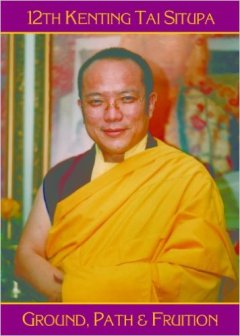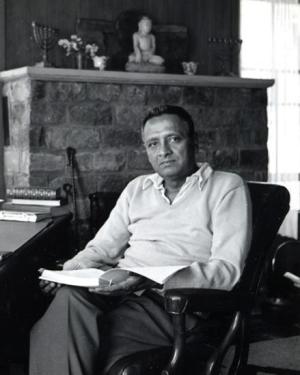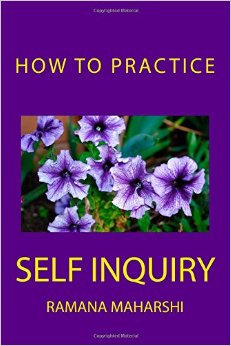 In the classical Eastern spiritual traditions, much use is made of reason and philosophical inquiry. Practitioners often sit with deep questions evolving around personal identity, and where our “me” actually resides.
In the classical Eastern spiritual traditions, much use is made of reason and philosophical inquiry. Practitioners often sit with deep questions evolving around personal identity, and where our “me” actually resides.
It begins with the simple question: Who Am I?
In mature spiritual practice, this questioning moves beyond mere conceptual inquiry to a deepened sense of present-moment attentiveness to the phenomena of what is.
For this, not even words are required…. just the willingness to be present and pay attention.
But the words and their associated concepts are an important starting point, for if we begin with ideas that don’t correspond to what’s real, our exploration will lead us down roads that lead to dead ends, and untenable conclusions.
For this reason – and to avoid such pitfalls on the path – the Tibetan Buddhist tradition conceives the path as having Three Stages:
1. Ground
2. Path
3. Fruition
To understand their relevance here, it’s necessary to understand what is meant by these terms:
The Ground is also sometimes called the View. It is called the Ground because it is the basis or premise from which the rest of our spiritual life proceeds. It refers to our view of the world, and our conception of what is real. It’s our starting point upon the spiritual path… Our personal view or understanding of the way things are, will determine the manner in which it will make sense for us to practice spiritual disciplines.
The Path is our religious life, in both it’s outward and inward dimensions. According to the view we hold, we will follow those spiritual disciplines that would inevitably be implied by that view… This is not just for Buddhists. It’s a logical progression, and we all do it. So it makes sense to look a little closer at this stage of spiritual life, in order to understand it’s meaning and importance.
Last but not least, is Fruition. This represents the conclusion or culmination of our spiritual life. It’s where we end up – spiritually speaking – according to the paths we have trod, which are in turn, dependent upon the premises we have held.
Again, it’s a natural progression, with each stage being dependent upon the one proceeding it. Our spiritual awakening – or lack thereof – is a direct product of the manner in which we have lived out our conceptions, ideals and beliefs.
Therefore, the beginning of spiritual life – the Ground – is of utmost importance, as it is the seed that determines the spiritual fruit we will realize in the end. This should be very clear now. But we have yet to consider whether there are any means to discern a clear and accurate view, in the interest of the end harvest being a good one.
In our present inquiry we will now take a look at the logical sequence called a Syllogism. It is a Western method which not only demonstrates the importance of a correct premise (Ground in Tibetan parlance), but how it might actually be discerned. It was developed by Aristotle. His most famous syllogism is:
Premise 1: All men are mortal.
Premise 2: Socrates is a man.
Conclusion: Therefore, Socrates is mortal.
“In this sequence, premise 2 is tested against premise 1 to reach the logical conclusion. Within this system, if both premises are considered valid, there is no other logical conclusion than determining that Socrates is a mortal.” (Credit: Ryan Weber, Allen Brizee)
This is called deductive reasoning, in which we deduce specific conclusions from general facts. As our next example will illustrate, an incorrect premise corrupts the process of deductive reasoning.
Furthermore – and here is where it starts getting important – if we hold premises that are not true, we will make invalid conclusions. Our path in getting to that invalid conclusion would be called a logical fallacy. The French enlightenment philosopher Voltaire was thinking along these lines, when he wrote the following famous line:
Here’s an example of a logical fallacy:
Premise 1: All crows are black.
Premise 2: The bird in my cage is black.
Conclusion: Therefore, my bird is a crow.
At this point, if you’re paying attention, you’ll notice that while both premises are correct, this doesn’t ensure that the conclusion is a valid one.
Here’s the reason for this seeming inconsistency: in the first instance using Socrates’ example, we had two related and dependent premises. They are related in that the object of both premises is the category “man,” and that in the second premise, the category “Socrates” can be shown to be dependent upon (and an expression of) the first category, man.
But in the second example using crows, we have two unrelated and independent premises, therefore the line of reasoning falls apart, and we end up with a conclusion that may not be true.
At this point, our point should be perfectly clear, which is the importance of some objective means to ascertain whether our explorations will be fruitful, or take us to some places that aren’t very clear.
So far, the examples given have shown us how the syllogism can make clear both valid and invalid processes of reason. But our examples have used only mundane topics, such as crows and men, rather than being used in a spiritual direction. Rather than walking through the aforementioned steps with spiritual themes now substituted for the mundane, it will be for the reader to exercise their minds by using the method that’s already been given.
But the difference begins simply with our chosen premises. Rather than begin with initial premises on the order of “All men are mortal” or “All crows are black,” try starting out with premises such as “All men are sinful by nature” or “Men are born inherently good.” Or choose your own premise – whether you believe it to be true or false – and follow it to it’s logical conclusion. Keep in mind that if either the primary or secondary premises are flawed in any way, the conclusion they imply cannot be trusted.
The syllogism as a means of inquiry keeps us honest, and it keeps us on track…
Now… whether our chosen spiritual path most closely follows Eastern or Western modes of practice, once we’ve become clear on our views of existence, formally entering upon the second stage called the Path, becomes the active mode whereby we explore, test and even express our premise. If our intention is sincere, the path serves as a crucible wherein we test our spiritual premise, much as a metallurgist uses heat to test gold. The dross or that which is unreal, or inessential to our goal, will hopefully be removed.
In the Eastern spiritual mode, when practitioner asks “Who Am I?” This question becomes the central focus of the Path. By inquiring in this manner, what the aspirant is attempting to do, is very interesting, in that the classical sequence of the syllogism isn’t being followed, yet followed to it’s conclusion, this form of inquiry also leads to knowledge of truth.
There’s a difference between these eastern and western forms of inquiry, that demonstrate different but complementary value sets…
As we’ve seen, Syllogistic reasoning has it’s appropriate place. It is good for arriving at truth concerning relationships between objects or ideas. And if you want a clear vision of how good your reasoning really is, the syllogism is for you, for it’s speciality is in rationally discerning a clear sequential process of reason regarding the relational world…
By contrast, Eastern modes of reasoning which centre on Self-inquiry aren’t about objects, or identity of being with matter, bodies, etc, but rather what underlies all these relative categories of manifest existence. It’s simply about Pure Being, irrelevant of the impermanent forms, subtle ideas, and temporal appearances which populate it’s expanse. It doesn’t dwell on the relational lines of demarcation between things, but rather attempts to strip them away, to reveal their Substratum, or Ground of Being.
It’s important to understand that this isn’t about whether one form of enquiry is better or more valuable than another. It’s more in assigning each to it’s appropriate and therefore practical domain.
So… now we’ve seen that there are indeed modes of reason and philosophy existing necessarily within the religious domain, something many have been taught to view as mutually exclusive. This may spark interest, at least for it’s uniqueness compared to more familiar concepts.
But there may still be a part of you that’s wondering: “Where is the importance? Is it important at all? Why would a truly religious person wish to engage in philosophical inquiry?” Or you may simply have no interest. Like many, you may feel that truly spiritual religion is really all about emotional connection to some sort of intangible, yet infinitely vast Divine Personality…. but not about abstract principles that only bookish sorts of people take an interest in…
If this is your position, I would like to share with you a very different perspective, one you may never have considered before.
Concerning not only the relation of faith and reason, but the very real importance of reason in the religious life, the modern Vedantic sage Swami Nikhilananda summed it up succinctly:
“The one is incomplete without the other. One may not be able to arrive at Truth exclusively through reason, but one’s experience and statement of Truth cannot be valid if they contradict reason. Religion without philosophy tends to become dogmatic, superstitious, and jejune. Religion supplies the aspirant with feeling or passion, and philosophy prevents him from wandering into dark alleys or up dead ends. A true philosopher has something of the spirit of awe, adoration, and reverence cherished by a religious person; and a truly religious person is not without the intellectual understanding and insight which are the chief characteristics of a philosopher.” ( Introduction: Self-Knowledge: Atma Bodha, page 19 )
It may be asked at this point, how the eastern process of Self-enquiry can effect spiritual realization. How can exploring abstract concepts lead us to this point?
In exploring this question, let’s take a look at a particularly direct mode of Self-enquiry as taught by one of the more legendary Indian sages of the modern age:
“In the path of direct enquiry as taught by Ramana Maharshi, the seeker continually asks the question “Who am I?” – not so much with the intention of engaging logic or receiving a conceptual “answer,” but more in line with allowing Reality to unfold knowledge of Itself, by Itself, and to Itself – without any limited or wishful projection or concealment on our part. In this way, one is not affirming or denying anything in the usual sense, but merely inquiring into Reality. The enquiry itself does not, except perhaps in the beginning stages, take the form of discursive thought, and neither does the “answer.” The answer to this question is Truth – is Knowledge – is Consciousness.” (Spiritual Discernment Across the Spectrum of World Religious Traditions; Nectar of Nondual Truth #28)
So, to return again to our subject, this direct Self-enquiry is silent, non-conceptual, and for those who understand, not even dependent upon words such as “Who Am I.” The words “Who Am I” are only symbolic of the quality of attentiveness to Reality, which some Zen masters have called “bare attention (Zen meditation is the embodied practice of that attentiveness).”
In this practice of self-inquiry, it is soon discovered – experientially – by the aspirant, that this question with which s/he is concerned, as it begins to pervade the very act of attention to all that exists, does not remain merely an abstract query, but so completely reorients the context for that attention to existence, that the very contents of all the phenomenal experiences it illumines becomes transformed. It is as though the outer forms of the objects of natural experience make a shift from representing lines of demarcation which designate and separate substantial physical entities, to representing merely symbolic appearances which manifest Eternal Principles, inter-collectively populating the same Ground of which they’re all an integral and complementary part.
Here’s another way of expressing it. Imagine a world in which people can recognize forms, but not the substance of which forms are made. In such a world, the people may be able to perceive various forms such as ring, necklace or crown. But being oblivious of the underlying substance or ground, if you were to tell them of the substance gold, not only might they be unable to perceive it, but you could possibly get yourself branded a heretic. All this, though the substance gold were present and available to their senses. Their idea of forms metaphysically divorced from their ground, would so alter their perception that all the while, they would be unaware that they were having direct experience of gold.
Imagine in this instance, that gold represents God, and all the forms in which it’s expressed, represent all the manifest forms and beings of the world. This metaphor is illustrative of the truth that mere sense experience (what to speak of sense experience allied with emotion) is insufficient to verify truth with any certainty.
Because of this, reason must be brought to bear on any deep questions concerning our existence. It safeguards us from wandering into those dark alleys or dead ends earlier mentioned in this essay by Swami Nikhilananda.
Still confused? You’re not alone. This existence is confusing, so you’re in the same boat with all the rest of us. Consider shifting your ideas around reason and it’s relation to religion and spirituality. Know that as reason is a valid path to truth, it is complementary to both sense experience and emotion, not opposed to them. It is the guiding force that directs them down fruitful pathways.
At the end of your life, in concert with emotion and sense experience, reason could be the boat that affords you passage to that farthest shore beyond all sorrow. At the very least, it can steer you safely through much trouble in this life.
Are you interested in a deeper perspective on the practice of meditation? Consider reading this essay:








